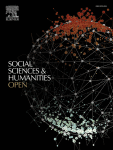This study delves into the evolving field of adult education, particularly examining the integration of digital media into agricultural training programs in Austria. The study is set against the backdrop of a broader digital transformation that is reshaping educational landscapes globally. It emphasises the importance of adapting adult education methodologies to include both e-learning and traditional face-to-face interactions to better accommodate the diverse needs and preferences of learners. The research specifically targets Austrian farmers, distinguishing between part-time and full-time farmers to explore differences in educational preferences. The study employs quantitative methods, including surveys and data analysis, to determine how factors such as age and media competence influence farmers’ choices between digital and traditional learning formats. Notably, the document highlights a significant trend: younger farmers show a greater inclination towards digital platforms, whereas older farmers prefer conventional learning environments. Furthermore, the study investigates the role of media competence in shaping educational preferences, suggesting that enhanced digital skills are crucial for engaging effectively with modern e-learning tools. This is particularly relevant in promoting sustainable agricultural practices, where up-to-date information and techniques are essential. The findings aim to inform the development of tailored educational programs that not only meet the specific needs of farmers but also contribute to the broader goals of sustainable agriculture. By enhancing the alignment between educational content and learner preferences, the study advocates for a more effective and inclusive adult education system.




